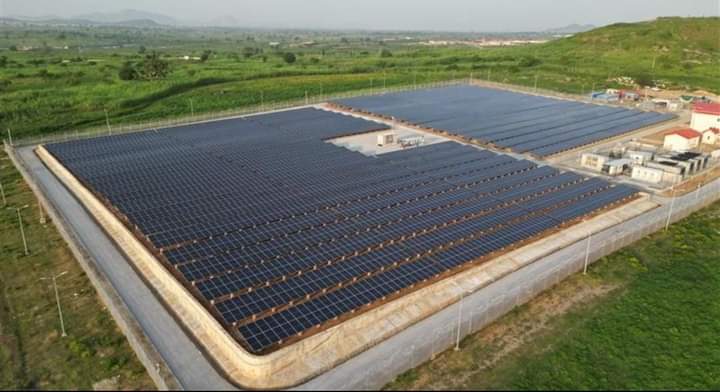President Bola Ahmed Tinubu is set to inaugurate a 3-megawatt solar hybrid power plant at the University of Abuja in early December 2024. The facility, supervised by the Rural Electrification Agency (REA), is designed to provide uninterrupted electricity to the entire university community in Nigeria’s Federal Capital Territory.
The project is part of the Energizing Education Programme (EEP II), a World Bank-funded initiative aimed at delivering clean, reliable, and sustainable energy solutions to 37 federal universities and seven teaching hospitals across Nigeria.
REA Managing Director and CEO, Abubakar Abba Aliyu, lauded the program as a significant step towards reducing universities’ reliance on fossil fuels and direct-grid electricity, which have imposed heavy financial burdens. “This intervention exemplifies our commitment to innovative energy solutions that empower educational institutions and foster excellence,” Aliyu said.
A Boost to Education and Sustainability
The power plant, nearing completion, aligns with Tinubu’s Renewed Hope Agenda, emphasizing alternative energy solutions for sustainable development. Minister of Power, Chief Adebayo Adelabu, described the project as a model for future energy reforms. “This initiative showcases the administration’s resolve to enhance energy access in critical sectors like education and healthcare,” he stated during a pre-commissioning inspection.
The University of Abuja’s Acting Vice Chancellor, Professor Aisha Sani Maikudi, expressed her excitement about the transformative impact of the project, noting, “Uninterrupted power is a game-changer, enabling advancements in teaching, learning, and research.”
National Impact
The REA has successfully energized several institutions under the EEP II, with federal universities like Obafemi Awolowo University and Federal University Lokoja already reaping the benefits. Professor Adebayo Simeon Bamire of OAU praised the initiative for alleviating the financial strain on universities.
Renewable energy expert Olufemi Akinyelure emphasized the broader implications of the program. “This is not just about electricity—it’s about transforming universities into hubs of innovation and safety,” he said.
Looking Ahead
Once operational, the 3MW solar plant will bolster campus safety, reduce fossil fuel dependency, and empower institutions like the University of Abuja to achieve academic excellence.
The commissioning marks a milestone in Nigeria’s push for renewable energy adoption, promising a brighter and more sustainable future for education in the nation.
Peoplesmind


